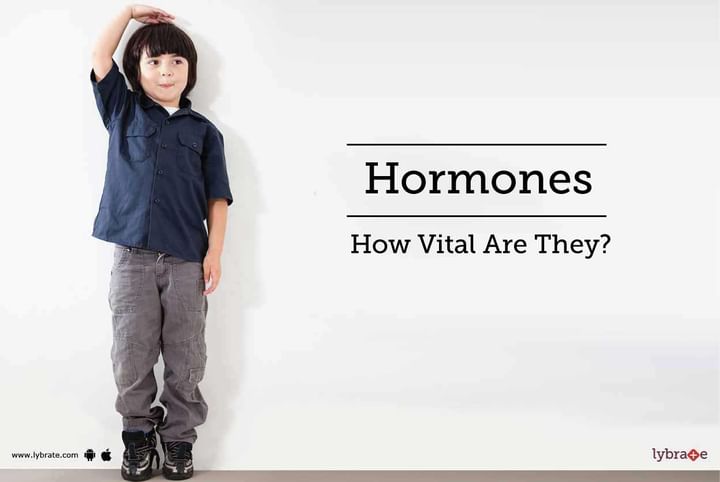Hormones - How Vital Are They?
Hormones are vital for the human body. They are basically chemicals released into the bloodstream and travel from one cell to another. They travel through the blood and assist organs in performing numerous functions of the human body. Hormones are responsible for a wide range of activities like growth, puberty, facial hair, stress, mood, reproduction, sleep, reproduction and many more. They are also found in other organisms like plants and animals.
Hormones are secreted by endocrine glands. The endocrine glands include pituitary, adrenal and thyroid glands. The study of the endocrine system and hormones is known as endocrinology. Also, some major diseases are caused by a hormone imbalance in the human body. The functions or activities of the body affected by hormone secretion are:
- Growth and development
- Metabolism
- Mood
- Sexual functions like menstruation, fertility, reproduction.
- Blood Sugar level
Some vital hormones affecting human health:
- Estrogen: Also known as the female hormone and responsible for a lot of functions and activities associated with a female body. They are secreted by ovaries and are primarily responsible for reproduction, menopause, puberty, moods and even sleep. High level of estrogen production is rare and mostly occurs because of oral contraceptives. Low level of estrogen is more common among girls and women alike. However, the most common disease experienced by females is PCOS (polycystic ovary syndrome). Imbalance of hormones will mostly lead to hair loss, acne, depression and even osteoporosis. You can start by taking supplements like vitamin B complex and magnesium or sometimes even undergo hormonal treatment.
- Testosterone: It is the male sex hormone. However, they are present in low quantities in females too. The testosterone is responsible for muscle growth and developmental functions. They also control puberty in males, facial hair, libido, erectile functions and formation of sperm. Imbalance can lead to depression, mood swings, insomnia, erectile dysfunction and also acne and hair loss. Excessive secretion of testosterone in females leads to increased hair growth and deepening of the voice. Moreover, regular drinking and smoking may lead to decrease production of testosterone among males.
- Cortisol: It is one of the many hormones secreted by the adrenal glands. They are responsible for physical, stress regulation, maintenance of the immune system and inflammation, etc. High level of cortisol can lead to stomach ulcers, high blood pressure, fatigue, anxiety and depression. Low level of cortisol may lead to chronic fatigue syndrome and even alcoholism.
- Insulin: It is one of the most important hormones in the human body and is produced by the pancreas. Insulin is responsible for breaking down carbohydrates in the body and maintaining blood sugar level. Its job is to use the sugar (glucose) from carbohydrates and convert it into energy. An imbalance of insulin leads to high blood sugar level (hyperglycemia) or low blood sugar level (hypoglycemia). Such imbalances can lead to diabetes in humans which vary depending on the blood sugar level of the body.
- Growth Hormones: They are secreted by the pituitary glands of the body. The hormones are responsible for growth and development in children and teenagers. They are also responsible for the proper functioning of the heart, muscle development, metabolism and many more. Imbalances can lead to stunted growth in children. Consult your doctor for ways to boost growth in your child.
Hormones play a major role in the human body. Their deficiency or imbalance can create serious health issues and disease for humans. So the next time you have difficulty in losing weight or suffering from depression, your hormones are equally responsible along with your genes.



+1.svg)
